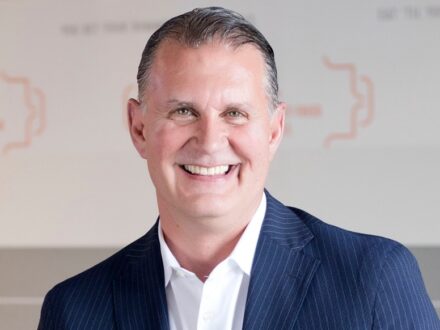Article originally published in Franchise Times on Sep. 1, 2020
Written by Nick Upton
Almost exactly a year ago, Greg Willman made franchise news as the first franchisee of emerging concept Naf Naf Middle Eastern Grill. Since then, he’s opened the first franchise location, broke ground on his second and was named CEO of the now 40-unit company.
“It’s been an eventful year in every way possible,” said Willman, who assumed the top role in June.
Given the timing of the move, it looked a bit like he became the COVID-19 leader, but Willman said ever since former CEO Paul Damico left to head Global Franchise Group in April, there had been discussions about who would take over.
“Gary Beisler, who I know well from our stint at Qdoba together, he became the interim CEO. That got us talking quite frequently about various things. That evolved into Gary asking if I were interested in getting involved in the brand” at the corporate level, said Willman.
Before signing a 10-unit deal with Naf Naf for the Indianapolis market, he’d been looking for a brand to lead under 316 Investments, the early-stage investment company he founded back in 1998 that became the owner of his operations in Qdoba Mexican Grill.
“We were really looking for a brand to invest in and potentially acquire. You would remember, the market was pretty frothy at that time and valuations were pretty aggressive and we weren’t willing to pay up to do that,” said Willman. “So, we took a little hiatus, we had a venture fund and we put the restaurant operations on hold. In that window we became aware of Naf Naf and continued to watch their evolution and growth and Roark Capital get involved as well.
“We broke the promise we made to ourselves to not get involved as a franchisee and did just that because Naf Naf was such a compelling brand and an authentic, organic story around the origin; we couldn’t ignore it.”
Willman opened his first Naf Naf in Carmel, Indiana, on March 16, just in time for COVID-19. A week later, not only did his restaurant shut down, Naf Naf suspended operations for the entire company.
Two factors triggered that decision: One, the concept’s initial growth focused on central business districts. A location at the U.S. Bank Plaza in downtown Minneapolis, for example, routinely had lines of more than 50 people waiting for the pillow-soft pita and spicy bowls. But as scores of those workers left their offices, few people remained nearby. Secondly, Naf Naf’s supply chain of imported ingredients was disrupted.
Locations began reopening May 18, a challenging process, said Willman. “We were at a dead stop,” he said. “Really, all of these reopenings have been mini, truncated new store openings.”
As more restaurants came back online, supply chain difficulties eased and customers were eager to return. Suburban locations are doing better, he said, and the dinner daypart dramatically expanded. Not much changed or will change on the operations side, as the brand had already made key investments in off-premises operations and third-party delivery, a major part of the bounce back.
Staffing, however, has been difficult.
“Our biggest challenge has been on the staffing side. Because we went on complete suspension, we were not able to be in as close contact with our staff as other operators who went on a reduction. Fortunately, we were able to retain most of our managers and key people. But if we need 15 people and we retained five to six, we need to put in some time to re-staff,” said Willman.
Now he’s leaning on entrepreneurial skills honed over the last 25 years as he guides an emerging brand with plenty of problems to solve in the near term.
“It’s still a relatively small, emerging brand and it’s a brand restarting from stop. So, the fact that I’ve started and grown early-stage companies benefits me the most,” said Willman. “I hope we’re aggressive and nimble and creative and we’re good at problem solving for ourselves, our brand and our franchisees. I hope we’re good at all of those things that you’d expect a smaller organization to do.”
Naf Naf signed several deals earlier in 2020, and the second and third franchisee groups are set to open locations this year. Willman said he’s looking to put a stronger focus on geographic concentration to push brand awareness and AUVs in growth markets.
Original article can be found at Franchise Times

